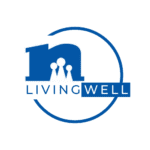Health is a lot more than how one looks and feels. Conversations about health should include all eight dimensions or areas of wellness—that is mental, social, emotional, spiritual, financial, occupational, environmental, and intellectual. That’s the focus of Living Well Month, a national event in March promoting overall wellness and the education provided by Family and Consumer Sciences (FCS) professionals to improve the lives of people, families, and communities.
 “The Missouri Extension Association of Family and Consumer Sciences works through the University of Missouri Extension Service to offer information that will help families achieve a positive, healthy lifestyle,” says Lindsey Stevenson, nutrition and health specialist in Barton, Jasper, and Dade Counties. “Whether you are trying to manage your diabetes through meal planning and exercise, make decisions about health care and insurance, or get tips on effective parenting techniques, Extension FCS has a research-based answer.
“The Missouri Extension Association of Family and Consumer Sciences works through the University of Missouri Extension Service to offer information that will help families achieve a positive, healthy lifestyle,” says Lindsey Stevenson, nutrition and health specialist in Barton, Jasper, and Dade Counties. “Whether you are trying to manage your diabetes through meal planning and exercise, make decisions about health care and insurance, or get tips on effective parenting techniques, Extension FCS has a research-based answer.
To make every month a “Living Well Month,” consider these tips:
- Engage children in at least 60 minutes of physical activity on most days of the week. Adults need at least 30 minutes of physical activity. Play sports or recreational games, turn on some music and dance, hula hoop, or make an obstacle course. Take a walk or a bike ride in your neighborhood. All movement counts.
2. Start planning a garden now to work in the spring and summer. Gardening is great physical activity. This activity could also nurture your mental and environmental wellness.
3. Rethink your drink. The average adult human body is approximately 60 percent water. Water regulates every living cell’s process and chemical reactions. It transports nutrients and oxygen. Water also helps to maintain normal bowel habits and prevent constipation. Reduce the amount of soda and fruit drinks consumed daily.
4. Eat a variety of healthful foods. Eat colorful fruits and vegetables every day. Most people need to increase their fruit and vegetable intake. Have a sliced banana on cereal for breakfast. Enjoy a sandwich loaded with vegetables at lunch. At dinner, steam some vegetables and prepare a fruit parfait with yogurt for dessert. Try new fruits and vegetables. If there’s a kind you don’t like, try preparing it in a different way. See www.choosemyplate.gov for more information about nutrition for yourself and members of your family.
5. Read, read, read. Go to the library and check out books. Keep the mental stimulation flowing throughout the year regardless of your age. This will stimulate your intellectual health.
6. Talk to a friend or start a journal to get your thoughts and feelings off your chest. Staying in check with emotional health can be tough, but it’s important.
7. Check out parenting, finance, nutrition and/or food preparation classes offered by your Extension office. Scan the QR code for more information about upcoming offerings.
8. Maintain a healthy home. Check that your smoke detector is working correctly and test for the presence of Radon. Help manage allergies and/or asthma by cleaning and vacuuming regularly to reduce allergy triggers in the home. Avoid accidental poisonings by keeping medications locked up, and cleaning agents and other poisons out of reach of children.
9. Keep your family finances in check. Track your expenses and update your budget regularly. Eat at home often because meals outside of home usually cost more. Plan your menus and use coupons as a planning tool. Creating and sticking to a budget, along with paying of debt are great first steps to financial wellness.
All eight of the dimensions or areas of wellness are connected and support each other. Evaluate your overall wellness and take small steps to improve your health during Living Well Month and all year long.
 Extension Family and Consumer Science professionals are part of a nationwide educational organization funded through the Land Grant University System and United States Department of Agriculture. Local Extension Family and Consumer Sciences professionals provide practical, relevant, non-biased, research-based information.
Extension Family and Consumer Science professionals are part of a nationwide educational organization funded through the Land Grant University System and United States Department of Agriculture. Local Extension Family and Consumer Sciences professionals provide practical, relevant, non-biased, research-based information.
NEAFCS is an equal opportunity/affirmative action association. NEAFCS values and seeks a diverse membership. There shall be no barriers to full participation in this organization on the basis of race, color, gender, age, religion, national origin, disability, veteran status, or sexual orientation. Membership is not by invitation.
















